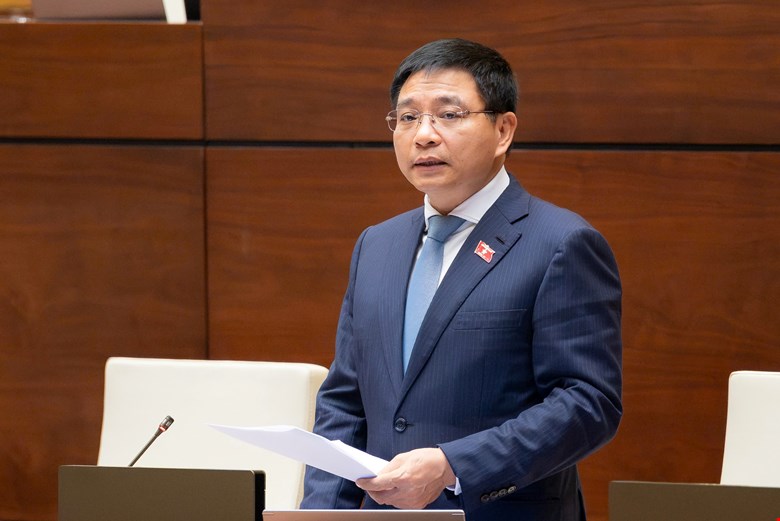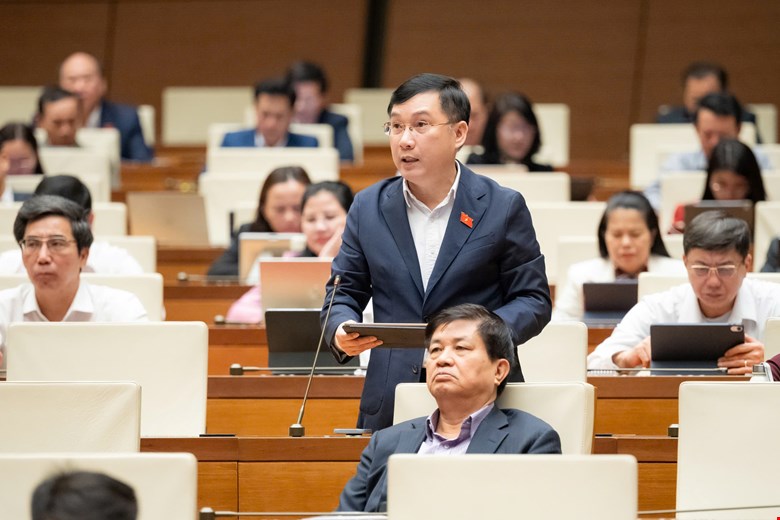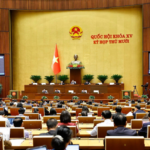On November 27th, the National Assembly held a plenary discussion on the draft amended Investment Law. Minister of Finance Nguyen Van Thang delivered a presentation, clarifying several issues raised by National Assembly delegates during the discussion session.

Minister of Finance Nguyen Van Thang. Photo: Pham Thang
Regarding the reduction of conditional business sectors, Minister Nguyen Van Thang stated that the Prime Minister has tasked the Ministry of Finance with collaborating with other ministries to thoroughly review and maximize the reduction of conditional business sectors.
In the initial draft, the Government proposed cutting 25 conditional business sectors, meaning no business license would be required for activities such as accounting services, rice exports, and temporary import-re-export of frozen food.
Following the Government’s directives and rigorous reviews, the latest draft law aims to minimize business licensing requirements for at least 50 sectors, an increase of 25 sectors compared to the initial draft.
The Minister of Finance announced that once the law takes effect, the Government will instruct ministries to further amend business conditions, shifting to a post-inspection mechanism and control through standards and regulations.
During earlier discussions, Delegate Le Hoang Anh (Gia Lai Province) supported the bold removal of outdated sectors. However, after reviewing, he noted that some sectors primarily involve technical standards and regulations, which may not align well with Article 7 of the draft law and do not require retention at the law level.

National Assembly Delegate Le Hoang Anh. Photo: Pham Thang
The delegate recommended reviewing and narrowing the scope of certain sector groups. Specifically, the food business group is currently too broad, as food safety standards and regulations are already detailed in specialized laws. He suggested narrowing the scope at the law level, retaining only high-risk stages, and moving all technical conditions to decrees and national technical regulations for flexibility.
Regarding e-commerce, the delegate advised against encompassing logistics, payment, and small platforms, suggesting instead focusing on large-scale entities with significant consumer data.
For sectors such as animal feed, seafood, environmental treatment products, plant protection drugs, veterinary drugs, and testing services, the delegate noted that these activities primarily concern quality and technical safety, with risks effectively managed through registration, testing, quarantine, and technical regulations. Therefore, maintaining them as conditional sectors at the law level is unnecessary; specialized laws or decrees should handle the details.
Concerning construction, testing, and conformity assessment services, Delegate Le Hoang Anh argued that these are essentially requirements for professional competence and certifications, not business conditions that restrict investment rights. He recommended that specialized laws on construction, measurement, standards, and regulations specify competence criteria, certification processes, and enhance post-inspection measures.
Revamping Investment Laws: Ending the ‘One-Size-Fits-All’ Approach
Members of Parliament have proposed a new philosophy for the revision of the Investment Law, advocating a shift towards risk management and the reduction of regulations that hinder business freedom.




















